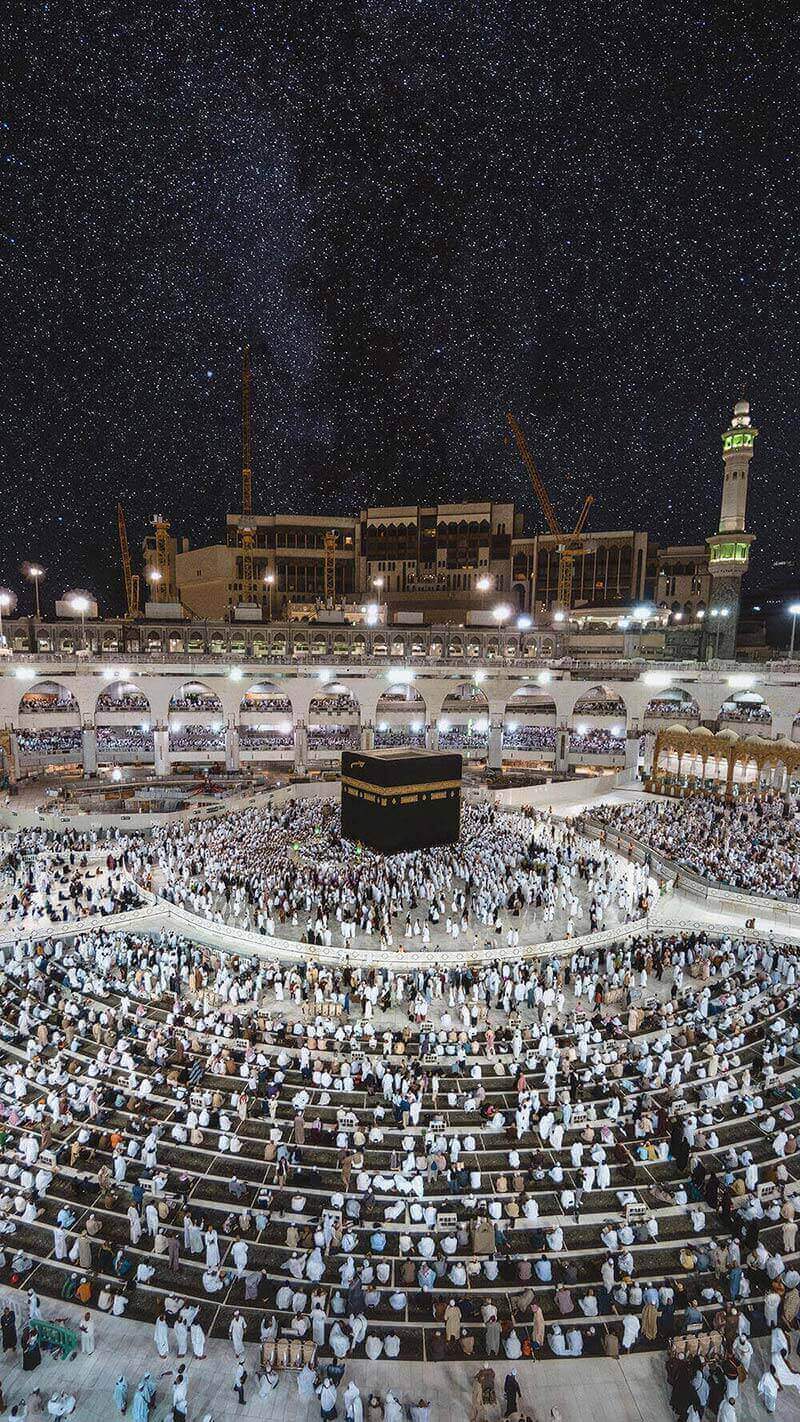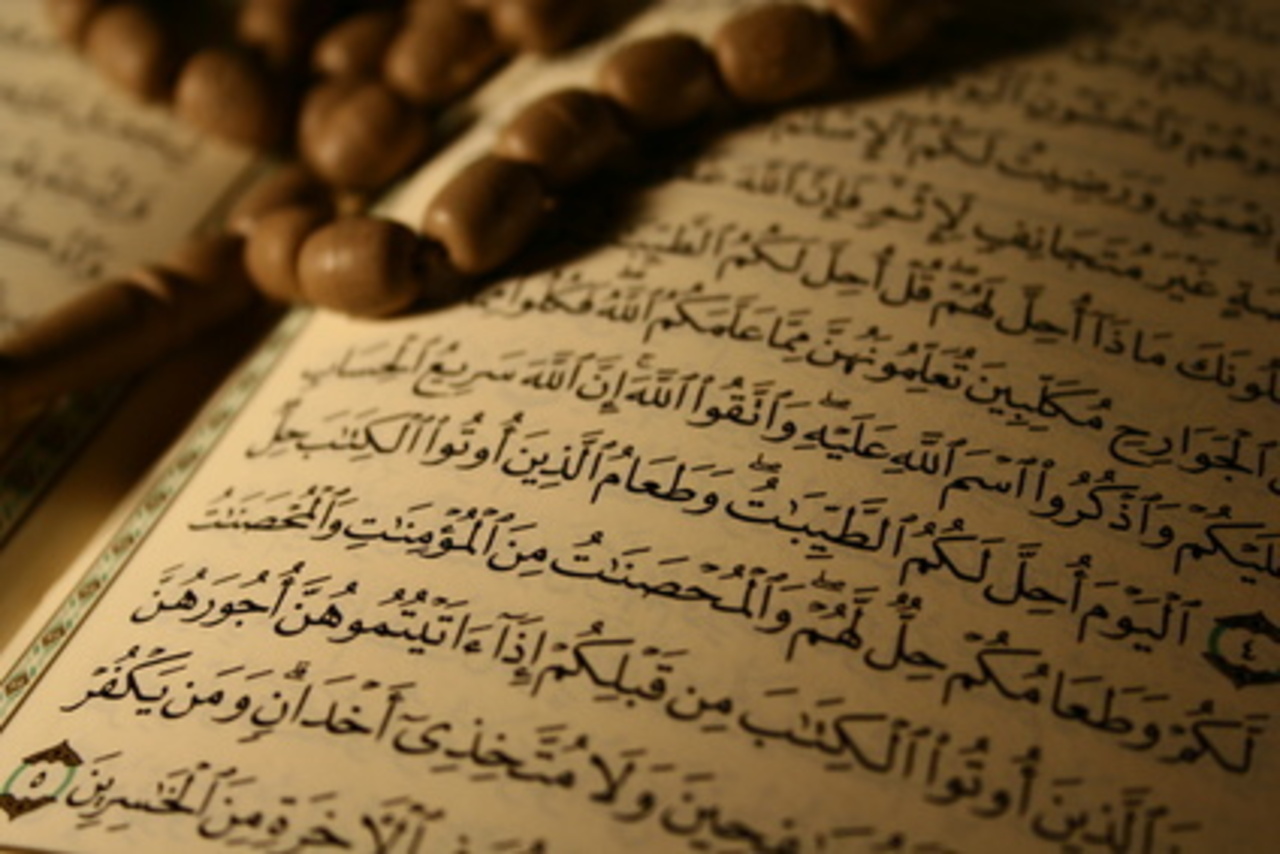
In 632 CE, Prophet Muhammad performed Hajj, i.e.
pilgrimage to Makkah. It is one of the five pillars of Islam
that must be done once in a lifetime for those who have the
financial and health capabilities to perform it. It includes
performing religious rites in the Sacred Mosque and other
places in Makkah that have connections to the life of
Abraham, the father of prophets.
By that time, most tribes in the Arabian peninsula had
embraced Islam and reverted to monotheism. The Prophet’s
mission was accomplished in 23 years and his life was
nearing an end.
On the ninth of Zul-Hijja (the last month of the lunar year that
matches 632 CE), Prophet Muhammad gave his "Farewell
Sermon" to more than 100,000 people who gathered in an
area called Arafat.
In his final sermon, Prophet Muhammad wanted all believers
to hold firmly to the Message God sent to humanity. His
Farewell Sermon was not a normal speech.
It was a historical meeting between a nation and its leader
who conveyed a divine Message that brought light and
guidance to all humankind.
On that day, a great verse was revealed from God:
...This day, I have perfected your religion and I have
completed My grace upon you and I approved for
you Islam “submission to one God" as your religion...
Quran, 5:3
The following is not a literal translation of Prophet
Muhammad Final Sermon, but a translation of the main
points he addressed.

O People!
Listen attentively to me for I do not know if I will ever meet
you again after this year and in this place.
O People!
Verily, your blood, your property and your honor are
sacred and inviolable until you appear before your Lord,
as the sacred inviolability of this day and this month of
yours.
Verily, you will meet your Lord and you will be held
answerable for your actions.
Every right arising out of homicide in pre-Islamic days
is henceforth waived and the first such right that I waive
is that arising from the murder of Aamer bin Rabiah
(a relative of Muhammad ).
O People!
Your Lord is one and your father is one.
All humankind is from Adam and Adam is fashioned from
clay, no superiority except by piety.
The Arab is not superior to a non-Arab, nor a non-Arab to
an Arab, nor a red skin person to a black skin person, nor a
black skin person to a red skin person, except through Allah-
consciousness.
Have I not conveyed (the Message)?
O Allah! Bear witness that I have conveyed (the Message).
Prophet Muhammad warned Muslims not to deviate from
God's law or gradually fall astray. He said:
O People!
Verily, the Satan has despaired of ever being worshiped in
this land, but he will be pleased by obedience in anything
(short of worship) in matters you may think insignificant, so
beware of him in your matters of religion.
At the end of his sermon, Prophet Muhammad said to
all present people: What will you say when you are asked
about me? They said: We bear witness that you carefully
conveyed the Message. Prophet Muhammad said to
them while pointing with his index finger to the sky:
O my Lord be my witness. (He repeated that three times.)
Prophet Muhammad lived for only a few months after he completed the pilgrimage rites in Makkah and returned to his home in Madinah. It was Monday, 12 Rabee Awal (632 CE approx) midday when Prophet Muhammad died in his home.
And guard yourselves against a day in which you shall be returned to Allah; then every soul shall be paid back in full what it has earned, and they shall not be dealt with unjustly. Quran, 2:281
According to authentic narrations, this was the last verse revealed to Prophet Muhammad before he died.
And We have not sent you but as a mercy to the worlds Qur’an, 21:107
Muhammad is not but a messenger, other messengers have passed on before him. So if he were to die or to be killed, would you turn back on your heels [to unbelief]? He who turns back on his heels will not cause any harm to God. God will reward the grateful. Quran, 3:144

Muhammad: A Prophet for Our Time
By Karen Armstrong
This book was published in 2006 by British author and former
nun Karen Armstrong. She argues that as of September 11,
2001, we have entered a new historical era that requires an
equally thorough re-evaluation.
This notion was one of the reasons that Armstrong decided
to revisit a subject she had already covered in 1992 in her
book "Muhammad: A Biography of the Prophet."
She depicts Muhammad as both a mystic and a wise political
and social reformer. He preached loyalty to God rather than
tribe; reconciliation rather than retaliation; care for orphans
and the poor; and in many ways, empowerment of women,
which was a surprise to some.
Armstrong indicated we must approach the life of Prophet
Muhammad in a balanced way to appreciate his considerable
achievements. He had important lessons, not only for
Muslims, but also for others.
Muhammad literally sweated with the effort to bring peace
to war-torn Arabia. His life was a tireless campaign against
greed, injustice, and arrogance.
She trusts that, if we are to avoid a catastrophe, the Muslim
and Western worlds must learn not merely to tolerate, but
to appreciate one another. A good point to start is with the
figure of Muhammad.

Q & A ABOUT CONTEMPORARY ISSUES
By Adeeb Abdul Razzaq
Did Prophet Muhammad teach violence?
Of course not. He is a messenger not a warrior! He conveyed God's Message to humanity. It cannot be a message of war. It is a Message of guidance to all children of Adam in order to make them aware of their Lord who created them and bring them to peace, love and justice.
Then, why do we see terrorist attacks by Muslim extremists?
In every religion, there are followers who are extreme. Extremism is a universal phenomenon that is influenced and caused by many complex factors. It is not related to a particular faith or community.
There are more than 1.7 billion Muslims worldwide. Muslim extremists do not represent Islam. They are much less than 1% of the total Muslim population. Many of these extremists join terrorist organizations who react to political developments or acts that are seen unfair or unjust to them or their people. They retaliate to these acts in their violent way.
But extremists and terrorists are commonly motivated by their religious beliefs!
This is not a precise statement. The escalating terrorism in our present time is initiated by identified organizations primarily for various political reasons. Religion is not the cause of terrorist behavior, but it is used by some extremists as a vehicle to justify their awful behavior. Statisticians know very well the difference between cause and effect.
Prophet Muhammad refused all forms of religious extremism and told extremists that, whoever does not accept his "Sunnah" i.e. teaching and way of life, then they are not among the Muslims. Further, he condemned targeting civilians and instructed Muslim soldiers not to harm any non-fighting person. He also stated clearly in his authentic sayings that committing suicide is forbidden in Islam and whoever commits suicide, he or she will be admitted in HellFire (see Bukhari 5778 and Muslim 109).

Christophobia versus Islamophobia
Although Christianity is described as a religion of love, tolerance and peace, history has witnessed many shocking war crimes that were initiated by organizations, armies or countries who were proud to be Christians.
Can we hold all Christians in the world responsible for these crimes?
If Jesus did not promote violence and terrorism, why did the crusades kill more than 60,000 innocent civilians in Jerusalem in 1099? What about the Tribunal of the Holy Office of the Inquisition (Spanish Inquisition), which was responsible for the torture and killing of thousands of Spanish Muslims in 1478 following the fall of Granada?
What justifies the mass killing of millions of native Indians by American colonizers for many decades until 1924? What about the Holocaust (1933-1945)? And the genocide against Bosnian Muslims between 1992 and 1995? Can we blame the Bosnian people if they had Christophobia? Can we describe Christianity as violent religion despite the fact the many violent acts, mass killing and crimes were committed by Christian people?

POCKET GUIDE
The Prophet of Islam Muhammad by Sam Deeb and Steven Scholl is a pictorial book that provides a biography for Prophet Muhammad and an overview of his teachings that formed the moral basis of the Islamic civilization.
It also sheds the light on Islamic culture, art, calligraphy and architecture. The book is available in international languages such as French, Spanish, German, Russian and Chinese.
This is the word Muhammad in Arabic written in a formative style. It looks like the upper part of a mosque with a dome in the middle. The lower part of the mosque is formed from the sentence “rasoolu-Allah,” which means "the Messenger of God”.
In Arabic, the word “Muhammad” means a person who is highly, frequently and repeatedly praised for his good deeds. Therefore, he is a praiseworthy person.
Courtesy of Farid Al-Ali